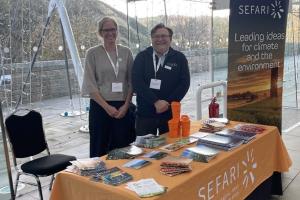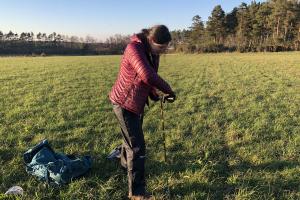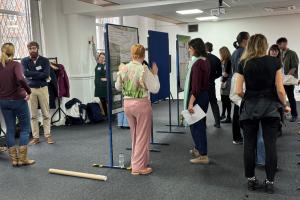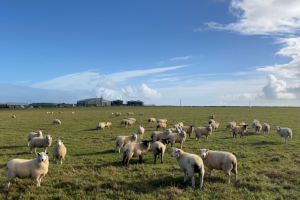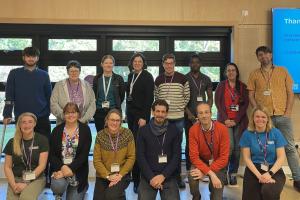Displaying 1 - 10 of 190
In early November, I had the pleasure of joining experts, policymakers and researchers at Scotland’s Food Security Conference in Edinburgh. The conference was organized by SEFARI Gateway in partnership with the Scottish Government and explored ways to strengthen food security across local, national, and global agrifood systems.
In-depth media training has been rolled out for nominated researchers and staff from across the SEFARI institutes to boost the pool of strong communicators. What are top tips for giving a good media interview, and why engage in the first place? Jenny Fyall, research and communications manager at SEFARI Gateway, gives her thoughts.
SEFARI Gateway extends its sincere congratulations to Professor Lorna Dawson on her appointment as Dame Commander of the Order of the British Empire in the New Year Honours List. Professor Dawson is one of the founding members of SEFARI Gateway and our Knowledge Broker for the environment. She works tirelessly to build relationships and exchange knowledge across our networks. We are thrilled that her hard work and expertise have been recognised.
It has been a few months since Jenny Fyall took on the role of research and communications manager at SEFARI Gateway, based at The James Hutton Institute in Aberdeen. Coming from a background in journalism and business, entering the sphere of government-funded academia has been like joining a new, and rather mysterious, world. Here she gives her first impressions, and explains why she’s full of enthusiasm for what SEFARI Gateway achieves.
Scotland’s Global Food Security Conference brought experts together to explore how we can build resilient, fair and sustainable food systems in a changing climate. Across three days of talks, debates and site visits, delegates examined global challenges, shared innovation, and highlighted why collaboration across research, policy and industry is essential.
Understanding how antimicrobial resistance (AMR) moves through Scotland’s rivers is essential for protecting public health, safeguarding our water resources, and strengthening national biosecurity. This research provides the first coordinated evidence base on environmental AMR across Scotland, combining catchment-scale monitoring with a new nationwide river survey.
The transfer of antimicrobial resistance (AMR) from the environment into the food chain has been the focus of research at The James Hutton Institute. Aiming to find out whether certain farm management practices might influence the levels of AMR present in the environment, researchers visited farms to analyse attitudes and behaviours.
What drives impactful science? This year’s SEFARI PhD Showcase and Science for Life Lecture hosted by BioSS (Biomathematics and Statistics Scotland), brought together researchers from across the SEFARI collective (The Rowett Institute, The Moredun Research Institute, Royal Botanic Gardens Edinburgh, BioSS, Scotland’s Rural College and The James Hutton Institute). From soil health to food insecurity, the event celebrated open discussion, collaboration, and daring ideas, and showcased the work of Scotland’s early career researchers.
In October 2025, Professor Lorna Dawson visited Orkney to explore the islands’ rich history, agricultural heritage, and cutting-edge research supported through the ENRA Strategic Research Programme, funded by the Scottish Government.
Ever found yourself literally tied in knots trying to learn communication skills? Earlier this month, I was roped together with a colleague during a science communication training day delivered by Edinburgh Science and funded by SEFARI Gateway.



